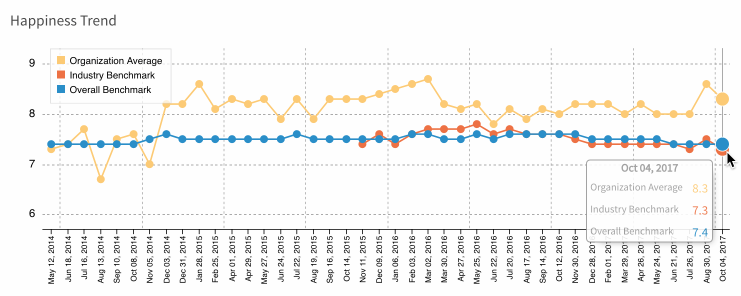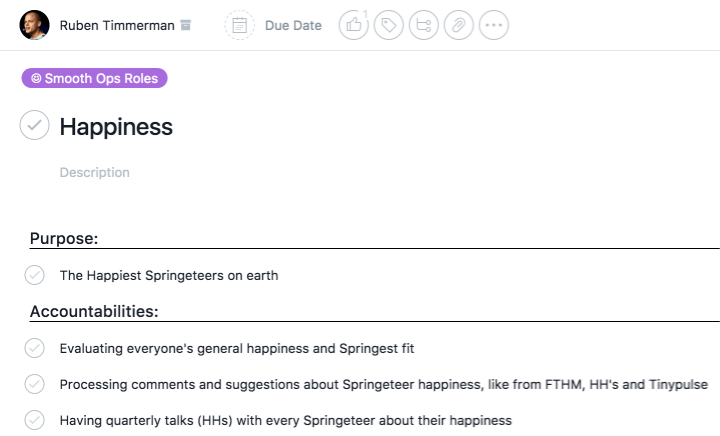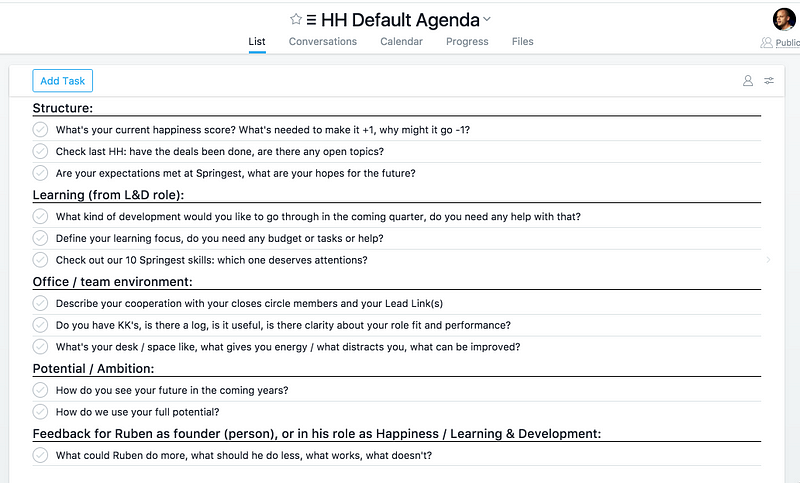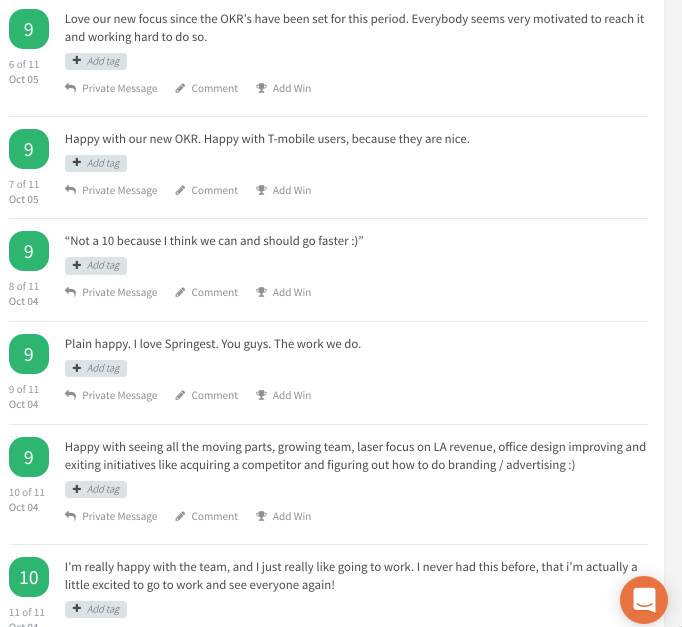Measuring happiness as a KPI at a self-managing organisation
At my company Springest, happiness is not a goal in itself. Long term productivity is, and I believe one leads to the other. We do measure…

At my company Springest, happiness is not a goal in itself. Long term productivity is, and I believe one leads to the other. We do measure happiness on a monthly basis and people often want to know “does Holacracy, or self-management, make people happy?”. It’s quite hard to get statistically relevant (A/B tested) data on this, but with the data we have I would say: yes.
Above you see the monthly Happiness Trend as measured by Tinypulse. A few things are good to know:
Employee count fluctuated heavily, as we are a fast growing (and sometimes shrinking) startup. This also has a major influence on happiness, as you can see in these periods:
- May — Oct 2014: funding and heavy hiring, from 15 to almost 30 people
- Oct 2014 — July 2015: initial growth, success and enthusiasm. Expansion to multiple countries, ending in mixed success and letting go about 10 employees to downscale international operations (the dips)
- Sep 2015 — Mar 2016: very successful period of revenue and profit growth with the smaller team, more focus on fewer projects, leading to ever increasing happiness.
- Apr 2016 — Jun 2017: Steady hiring, lots of things happening, moving offices (dip in Mar 2017, chaotic period), opening Berlin office, share buyback and new investment round
- August 2017: our workation (article in Dutch), one week of working together in sunny Spain…
Answers are 100% anonymous, and if there are more than 5 responses for a certain circle (team / department), we can drill down the report too.
70% of employees answer the question every month on average. 50% of them also leave a comment with their remark, and if someone leaves a grade lower than 7, I will ask them to get in touch with me to talk about it.
We outperform the tech industry by a full point on this happiness metric: 8,3 vs 7,3. Keep in mind, these are companies that measure happiness so it’s very likely the actual benchmark is a lot lower even (if you measure happiness, you likely care about it and try to improve it).
Quarterly Happiness Hour
Of course, being a company that runs on Holacracy, everything we do is explicit. So I don’t do this because I happen to be the founder of Springest, but I do it because I am accountable for it from my Happiness role:

Even with 50+ employees, I consider this one of my most important duties. We don’t talk about roles, about performance or about the work itself, but merely about how happy and productive the person feels. This is the rough agenda for the talks, that I often do during a walk around our Amsterdam or Berlin centre offices :)

Quotes from the happiness survey
I bet you’d like to see a bit of the actual responses to the survey, since there is little use in just a number, a simple metric. It’s about getting the conversation started, so here is a sample of recent scores and answers to give you an idea:
Score: 9 - Product circle got bigger & stronger again
- We’re in full force for the new Q now, excited about that
- Great Springest-wide focus on LAs, and great upcoming product projects.
- Cool & chill new people keep on joining, and people who’ve been here less than 1 or 2 years keep on stepping up. Makes me have a lot of faith in maintaining or even ++’ing our culture and fun as Springest grows bigger.
I’m always very happy if people leave a comment when they’re not so happy, since then it can be addressed. Although we of course try to not let it come to this, since this should have been addressed (although maybe it already is, but the effects are just not there yet for this person):
Score: 6 The main part of my job doesn’t interest me anymore, in which I mean the tasks and theory I am executing. I am learning in my free time to go into other roles, but my current ones aren’t really fulfilling/satisfying me a lot anymore. The only thing that keeps me going is really nice colleagues, awesome office and the freedom.
And just a bunch of “what you like to read and makes you feel all fuzzy and warm but doesn’t immediately trigger action”:

I hope this gives some insight into why happiness is important to us, how it’s not just a slogan on the wall, and how we try to go about it as data driven as we can. Let me know in the comments if you have questions or remarks to help us grow even further!

